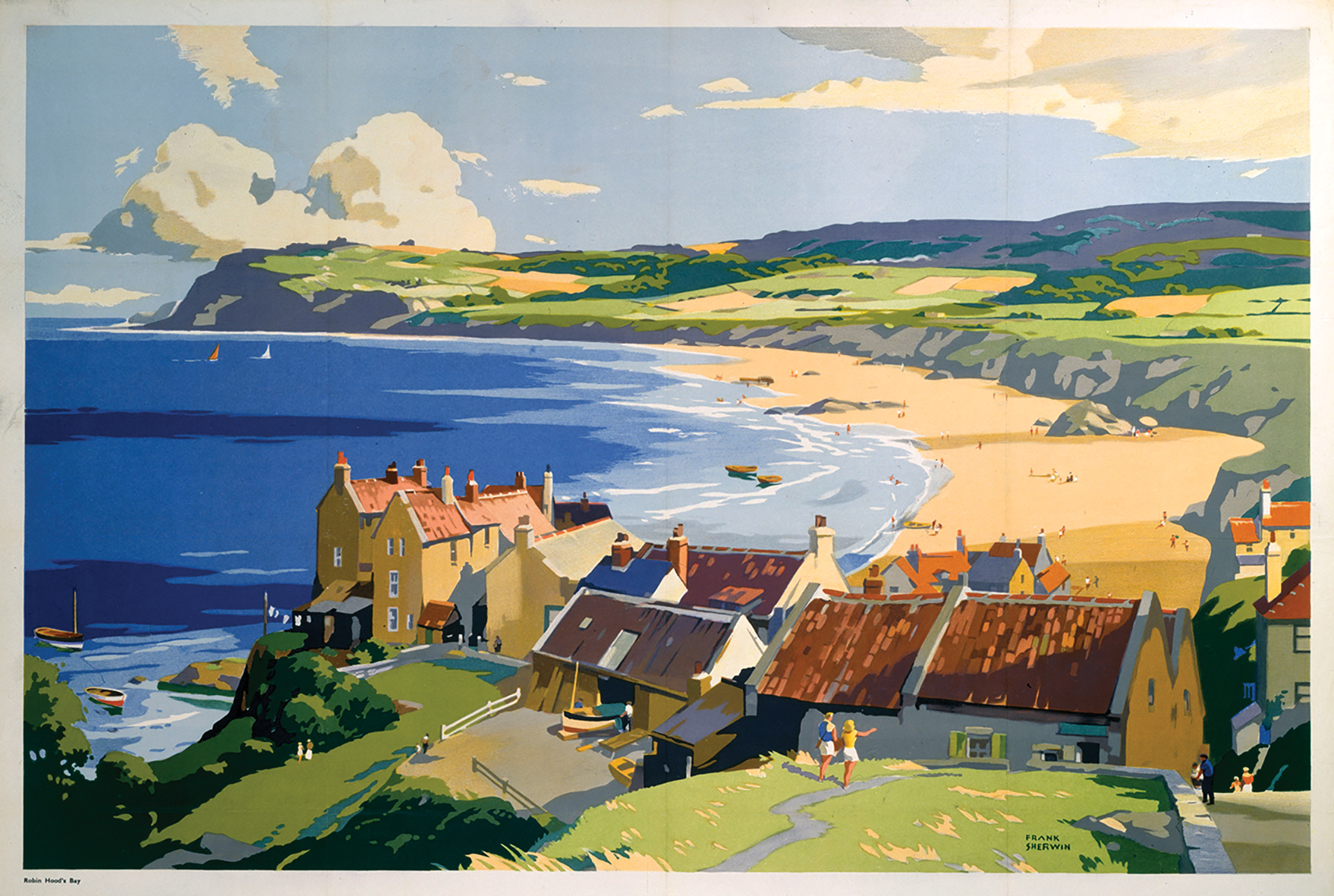
The Second World War is recently over, and the spring sun rises over a grief-stricken, traumatised nation. For 16-year-old Robert Appleyard, however, life is just beginning; he is alive, free, and hungry for both food and adventure. He sets out from his soot-stained coal-mining village to explore the coast, armed with little more than a sleeping bag, a groundsheet and a desire to “know my true self”. He finds work on farms and smallholdings where the families have lost men, “or seen them return depleted, decrepit or broken, parts of them missing like second-hand jigsaw puzzles”.
Approaching Robin Hood’s Bay, following a badger sett so vast it resembles a “portal”, he comes upon a fairy-tale cottage: hidden away in a hollow and tangled with vines. There lives Dulcie Piper, all wild hair and flowing clothes; a died-in-the-wool bohemian. Somehow, she has managed to survive the war with a larder full of French cheese and German sausages, and a cellar full of wine. She invites him to stay for lobster, and so begins a friendship that will transform both of their lives. Dulcie introduces Robert to poetry, eating for pleasure and a future beyond the dismal pits, while Robert’s discovery of a mysterious poetry collection in an outhouse leads Dulcie to make peace with the ghosts of her past.
The prose in The Offing is baroque and proudly old-fashioned, the antithesis of Sally Rooney-style sparseness. Every page is studded with descriptive jewels, such as: “the bay, its waters a beautiful mosaic made from a shattered mirror of emerald and malachite”. For the first few pages I fretted that the book was overwritten, but soon sank gratefully into it, like a warm bath. It’s such a relief, not to have to be cool.
Benjamin Myers started his fictional career with a novel inspired by the life of the Manic Street Preachers’ Richey Edwards, but his more recent books have moved back in time. The Gallows Pole, a fictional account of 18th-century fraudsters, won the 2018 Walter Scott Prize for historical fiction, and with The Offing he again shows his skill at evoking the atmosphere of a period. The novel has a strong but quiet sense of the lasting trauma wreaked by the war; although he is young, Robert has grown up surrounded by grief and despair, and the conviction that the world will never be right again.
The book is also deeply attuned to the natural world; even the insects in Dulcie’s meadow attain a poetic quality, “newly hatched creatures born in the dawn dew and dried by the morning’s rays to rise and conquer the unfolding day”. But nature is not immune to the ravages of war either; the horses are half-starved, “ribs showing like the hulls of beached old boats”. There is an ever-present threat of conflict returning; Robert wonders whether in 100 years “the stream would be poisoned, the old cottages wrecked, the pastures overgrown like neglected cemeteries. Would, I wondered, another war consume it all?”
There is only one awkward element – Myers’s presentation of the work of Romy Landau, the fictional, era-defining German-born poet who has left her last collection in Dulcie’s house. She is a powerful presence in the story, a symbol of the transcendent power of art and love. But she also gives Myers, himself a published poet, the daunting challenge of coming up with verses that could conceivably have defined an era. “My God. She was a genius,” exclaims Dulcie after Robert reads one out loud; it’s a perfectly decent poem, but also a bold claim.
But in every other respect, this book is a sensual pleasure. With the lightest of touches, Myers draws out the historical parallels of his story: “See Europe at the very least while you can,” Dulcie advises Robert, “because soon enough someone else will decide to try to destroy it again. And God knows they like to rope the young into their messes.” But, wisely, he doesn’t try to make this into a novel about now. It’s about the forever things: good food, and art, and friendship, and how those pleasures can redeem us, even during the harshest of times.
Alice O’Keeffe is the author of “On the Up” (Coronet)
The Offing
Benjamin Myers
Bloomsbury Circus, 272pp, £16.99
This article appears in the 06 Nov 2019 issue of the New Statesman, What went wrong



